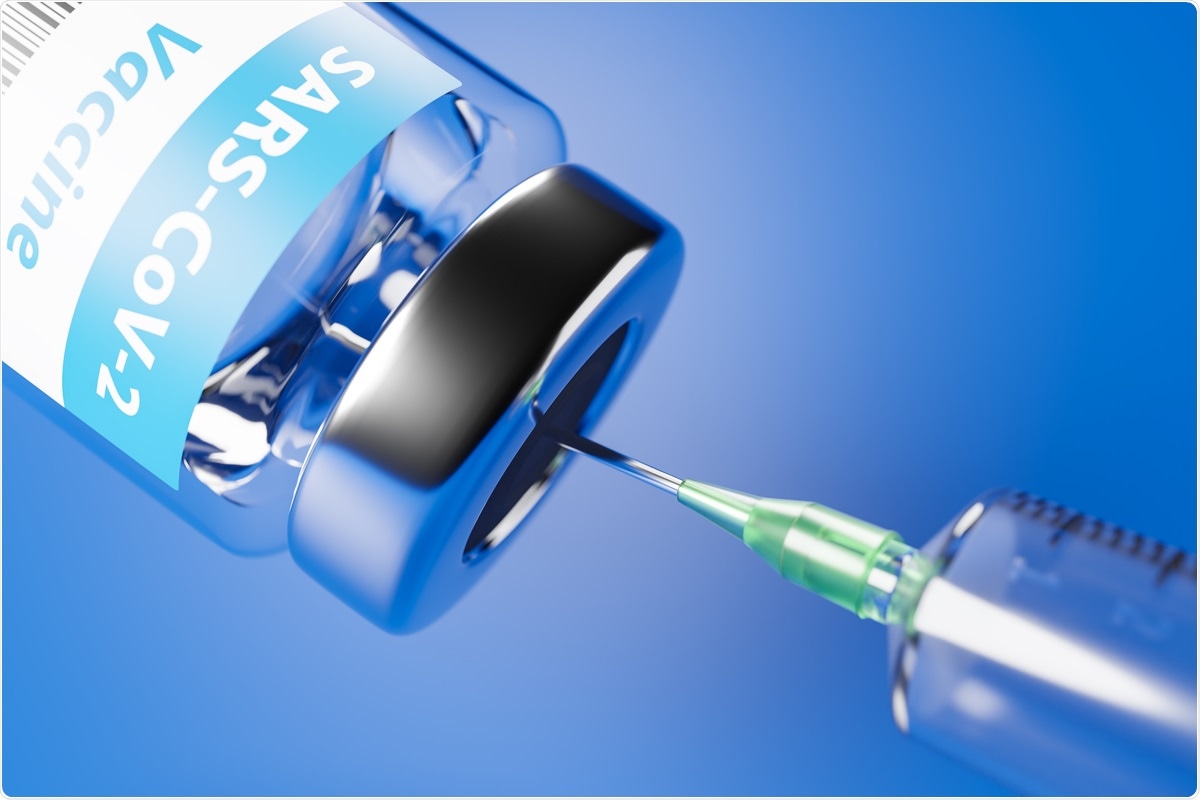Although the severe acute respiratory syndrome coronavirus 2 (SARS-CoV-2) has triggered the rapid development and approval of many vaccines, the virus and its variants are still spreading with a devastating global toll of over five million deaths, apart from the major socio-economic impact and burden on the healthcare systems.
 Study: A self-amplifying mRNA COVID-19 vaccine drives potent and broad immune responses at low doses that protects non-human primates against SARS-CoV-2. Image Credit: Andreas Prott/ Shutterstock
Study: A self-amplifying mRNA COVID-19 vaccine drives potent and broad immune responses at low doses that protects non-human primates against SARS-CoV-2. Image Credit: Andreas Prott/ Shutterstock

 This news article was a review of a preliminary scientific report that had not undergone peer-review at the time of publication. Since its initial publication, the scientific report has now been peer reviewed and accepted for publication in a Scientific Journal. Links to the preliminary and peer-reviewed reports are available in the Sources section at the bottom of this article. View Sources
This news article was a review of a preliminary scientific report that had not undergone peer-review at the time of publication. Since its initial publication, the scientific report has now been peer reviewed and accepted for publication in a Scientific Journal. Links to the preliminary and peer-reviewed reports are available in the Sources section at the bottom of this article. View Sources
This unprecedented pandemic has highlighted disparities in vaccine accessibility, with the developing countries being disproportionally affected. Reports show that less than 1% of people in low-income countries are fully vaccinated against coronavirus disease 2019 (COVID-19) compared to more than 50% in the developed world. This underscores an urgent need for safe and effective COVID-19 vaccines that could be rapidly distributed for use in large populations.
The background
Researchers from the US recently reported the preclinical development of a self-amplifying mRNA (SAM) vaccine that encodes a prefusion-stabilized SARS-CoV-2 spike glycoprotein. The novel vaccine demonstrated strong cellular and humoral immune responses at low doses in mice and rhesus macaques. A homologous prime-boost vaccination regimen with 3, 10, and 30 µg of SAM elicited potent neutralizing antibody titers in rhesus macaques after two doses. The 10-µg dose of SAM generated geometric mean titers (GMT) 48-fold greater than that induced by SARS-CoV-2 convalescent human sera. This study is published in the bioRxiv* preprint server.
T cell responses specific to the spike glycoprotein were observed at all dose levels of SAM. Vaccination with SAM offered protective efficacy against SARS-CoV-2 as both a single boost following ChAd prime and a homologous prime-boost, which shows a reduction of viral replication in the upper and lower airways. A 10 and 30 µg SAM prime-boost vaccination regimen and a ChAd/SAM heterologous prime-boost regimen offered the most protection.
The researchers performed extensive antigen sequence optimization to demonstrate a self-amplifying mRNA vaccine encoding the SARS-CoV-2 spike protein that induces strong humoral and cellular immune responses in mice and non-human primates (NHPs). Strong antigen-specific T cell responses at very low doses and neutralizing antibody responses in mice following the first dose suggest a good efficacy of this vaccine.
The researchers compared the efficacy of the SAM vaccine in NHP and humans to an adenovirus vector vaccine, which is known to induce robust T-cell responses. They found that the SAM vaccine platform induced significantly greater immune responses than the adenovirus vector vaccine in mice.
This finding prompted comprehensive spike sequence optimization efforts, which led to selecting a spike protein sequence that significantly increased T-cell responses and antibody titers. The immune responses induced by the SAM vaccine were even more robust with the optimized spike sequence, which emphasizes the need for proper antigen optimization depending on the antigen and the chosen vaccine platform.
One difference between the SAM vaccines in development and the approved mRNA vaccines is that the mRNA vaccines use modified nucleosides, which can reduce innate immune response and increase vaccine-induced adaptive immune response. This is supported by the fact that the CureVac mRNA vaccine without modified nucleotides was found to have lower clinical efficacy than Moderna and Pfizer/BioNTech vaccines.
These observations indicate that increased vaccine-induced immune response can be achieved by manipulating the innate immune response early during vaccination. The induction of innate immune response by SAM has studied the preclinical development of the vaccine and was optimized by adding components that decrease the activation of innate immune pathways.
Induction of innate immunity and its impact on vaccine potency might differ between mRNA and SAM vaccines, due to the replication of the SAM vaccine, which is an area of intense investigation.”
Conclusion
In conclusion, the SAM vaccine is an upcoming potent vaccine platform that induces strong T-cell and neutralizing antibody responses even at low doses. It protects NHPs from SARS-CoV-2 infection and is being tested in humans in homologous and heterologous prime/boost regimens.
The novel SAM vaccine is currently being tested in clinical trials at low doses as a homologous prime-boost regimen and a booster following the prime heterologous vaccine. This vaccine platform is easy to manufacture, rapidly adaptable, and a promising addition to the current panel of vaccines to fight against the ongoing pandemic and emerging SARS-CoV-2 variants of concern.

 This news article was a review of a preliminary scientific report that had not undergone peer-review at the time of publication. Since its initial publication, the scientific report has now been peer reviewed and accepted for publication in a Scientific Journal. Links to the preliminary and peer-reviewed reports are available in the Sources section at the bottom of this article. View Sources
This news article was a review of a preliminary scientific report that had not undergone peer-review at the time of publication. Since its initial publication, the scientific report has now been peer reviewed and accepted for publication in a Scientific Journal. Links to the preliminary and peer-reviewed reports are available in the Sources section at the bottom of this article. View Sources